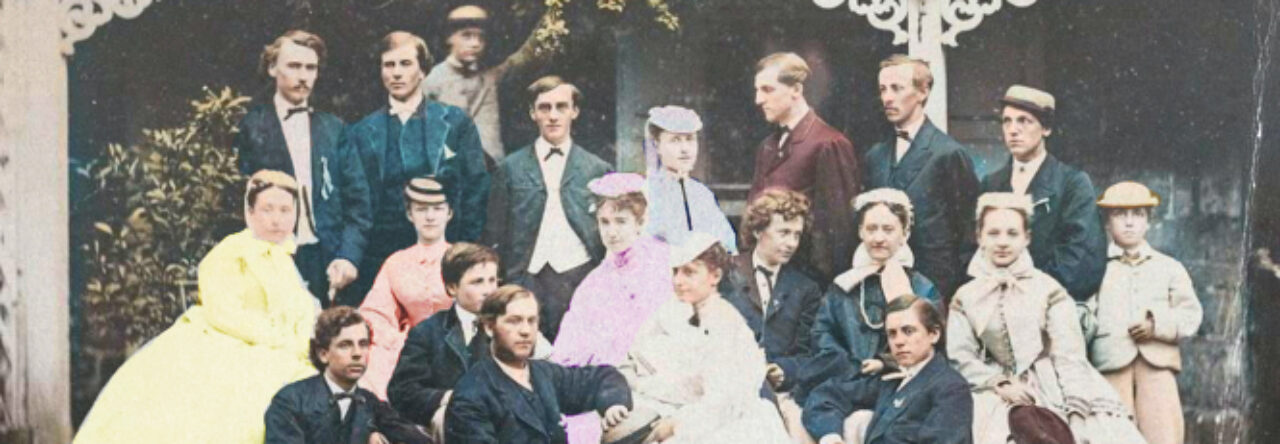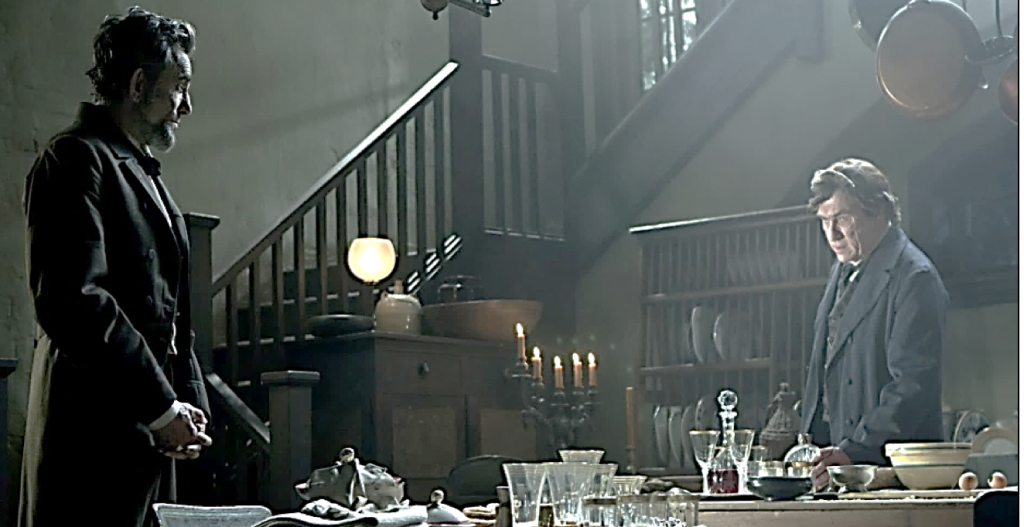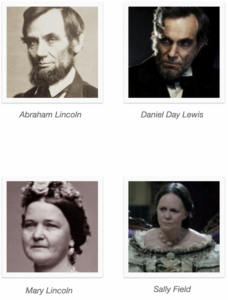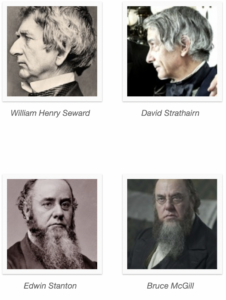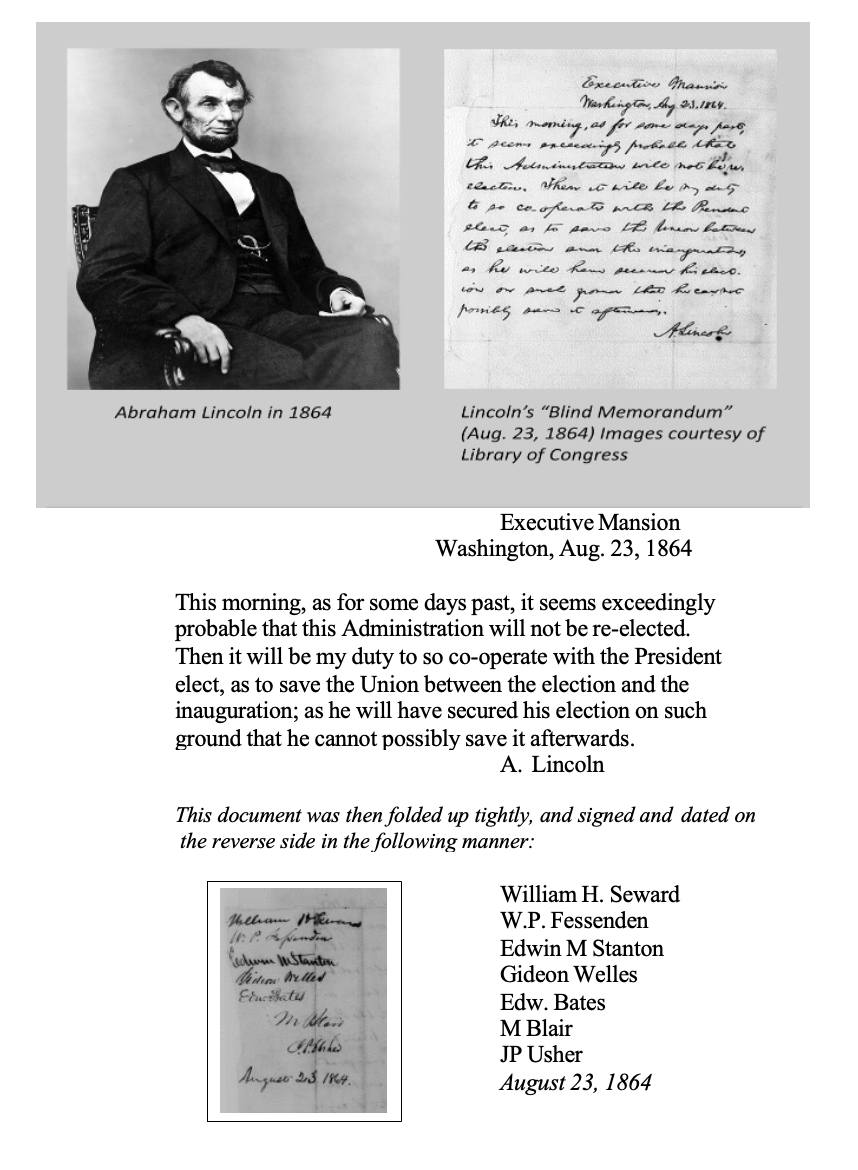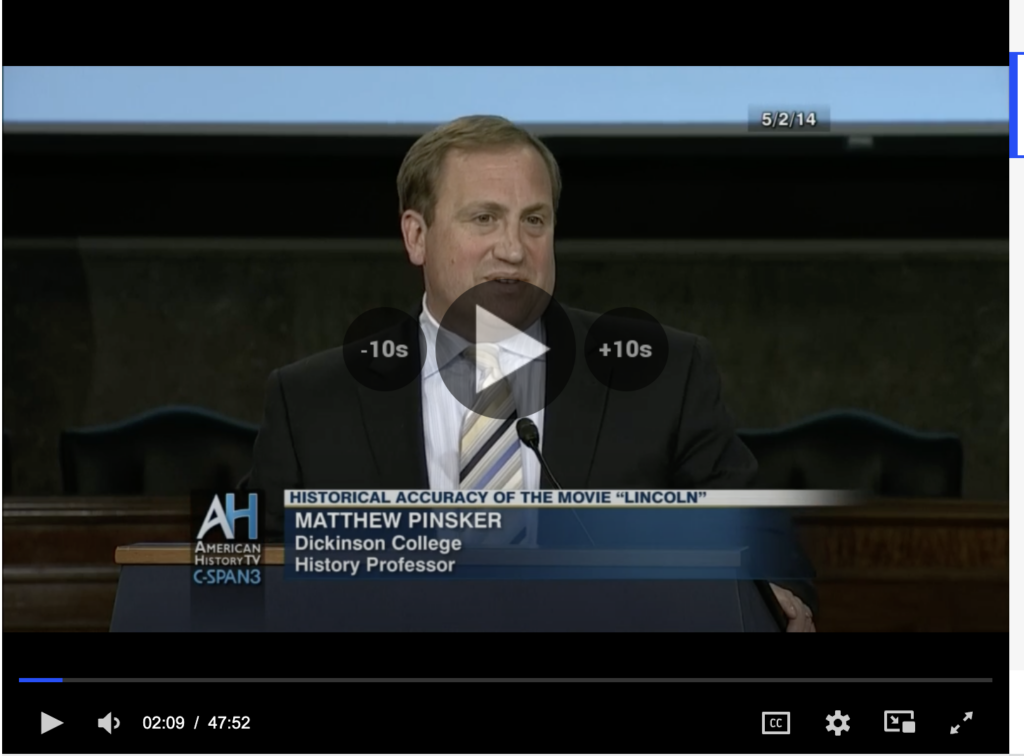“Based on a true story,” that means it’s not a true story and should neither be judged –nor defended– as one. —“Warning: Artists at Work,” 2013
Essential Question
Should teachers use historical movies like “Lincoln” in the classroom?
Video Gateway
Above: scene from “Lincoln” depicting private conversation between President and Lincoln and Thaddeus Stevens on January 14, 1865 following a “grand reception” at the White House. See classroom handout that Prof. Pinsker uses with this scene. Below find selected historical figures and their corresponding actors from the “Lincoln” movie as detailed in the “Cast of Characters” from the unofficial guide.
“Here’s my rule: Ask yourself, ‘Did this thing happen?’ If the answer is yes, then it’s historical. Then ask, ‘Did this thing happen precisely this way?’ If the answer is yes, then it’s history; if the answer is no, not precisely this way, then it’s historical drama.” –Tony Kushner, “Lincoln” scriptwriter
Discussion Questions
- What are the most glaring historical “mistakes” in the “Lincoln” movie? Do they matter?
- What are the easiest elements for any historical fiction to get historically correct? What are some of the most difficult?
- What have been your favorite historical movies or TV shows? What was most appealing about them to you?
The Real Drama: August 23, 1864
Pinsker on Lincoln movie, 2014 (C-SPAN)
“It is remarkable that more critics have not focused on that darkness at the center of the “Lincoln” movie, especially since it is a film that seems almost designed for classroom use. Teachers at the secondary and undergraduate level will be showing clips from “Lincoln” for years to come. For that reason alone, it deserves our toughest scrutiny, especially since almost all of the scenes involving political intrigue and corruption have been thoroughly fictionalized.” –Matthew Pinsker, Mr. Spielberg Goes to Washington (2016)
- For more detail, consult published version of this 2014 talk: Mr. Spielberg Goes to Washington
More History and Hollywood
- Recent New York Times article on problems with historical dramas like “The Crown (January 14, 2023)
- History Studio, a new company of historians (including Erica Armstrong Dunbar) devoted to setting new standards for historical “authenticity”
- Background on the photograph behind Will Smith’s new movie, “Emancipation”
